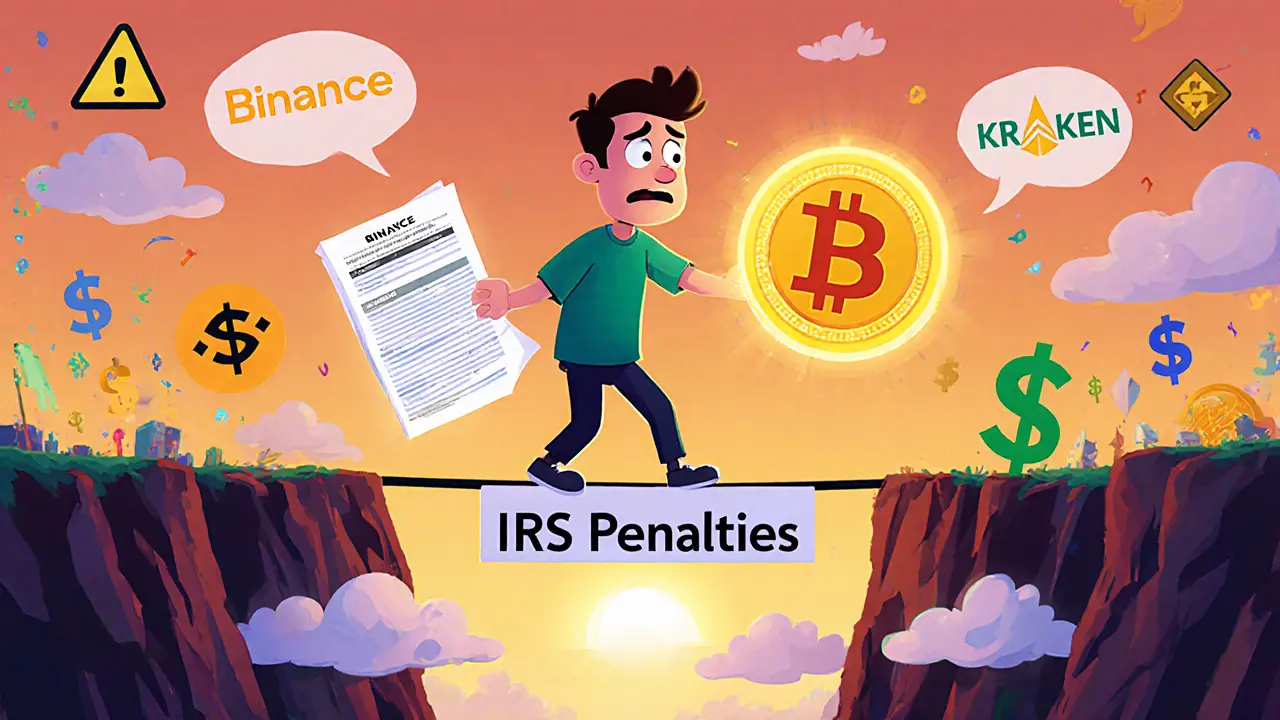Form 8938: What It Is and Why Crypto Holders Need to Know
When you hold crypto on a foreign exchange or in a wallet outside the U.S., you might be required to file Form 8938, a tax form used by the IRS to report foreign financial assets. Also known as the Statement of Specified Foreign Financial Assets, this form is not optional if your holdings cross certain thresholds. Many crypto users assume that because Bitcoin or Ethereum isn’t tied to a bank, it doesn’t count—but the IRS disagrees. Under FATCA rules, digital assets held on foreign platforms like Binance, Bybit, or Kraken (outside the U.S.) are treated the same as foreign bank accounts or stocks.
FATCA, the Foreign Account Tax Compliance Act, is the law behind Form 8938. It forces U.S. taxpayers to declare foreign financial assets worth more than $50,000 on the last day of the tax year—or $75,000 at any time during the year if you’re single. For married couples filing jointly, those numbers jump to $100,000 and $150,000. Crypto holdings on foreign exchanges count toward these totals. Even if you never sold, just holding $60,000 in ETH on Binance Singapore means you need to file. And if you’re living overseas, the thresholds are higher: $200,000 at year-end or $300,000 at any point during the year. The IRS doesn’t care if you use a hardware wallet stored abroad or a DeFi protocol hosted in Switzerland—what matters is where the exchange or platform is legally based. If it’s not registered with U.S. regulators, it’s foreign.
Form 8938 isn’t the same as FinCEN’s FBAR, but they often go together. While FBAR tracks bank accounts, Form 8938 covers a wider range: crypto exchanges, foreign brokerage accounts, even certain foreign trusts holding digital assets. Failing to file can cost you $10,000 per violation—and up to $50,000 if the IRS finds you knew you should’ve filed. The IRS has been scanning blockchain data since 2020, and they’ve partnered with foreign exchanges to get user data. If you’re on a non-U.S. platform, you’re already on their radar.
You don’t need to report every small purchase. If you bought $2,000 worth of SOL on Coinbase (U.S.) and never moved it, you’re fine. But if you transferred that same SOL to a wallet managed by a foreign company, or traded it on a non-U.S. DEX like WOOFi or Sovryn, and your total foreign holdings hit the threshold, you’re filing. It’s not about activity—it’s about location and value.
There’s no easy way around this. Some try to claim their crypto is "personal property," but the IRS has been clear: digital assets are financial assets. Others think using a U.S.-based wallet like Ledger or Trezor protects them—but if the exchange you used to buy or trade was foreign, it still counts. The only safe path is to track every foreign platform you’ve used, calculate your peak holdings during the year, and file Form 8938 if you’re over the line.
Below, you’ll find real-world examples of how crypto users got caught, what exchanges trigger reporting, and how to stay compliant without overcomplicating your taxes. Whether you’re holding Ethereum on a foreign platform or just wondering if your airdrops count, the posts here cut through the noise and give you straight answers.



